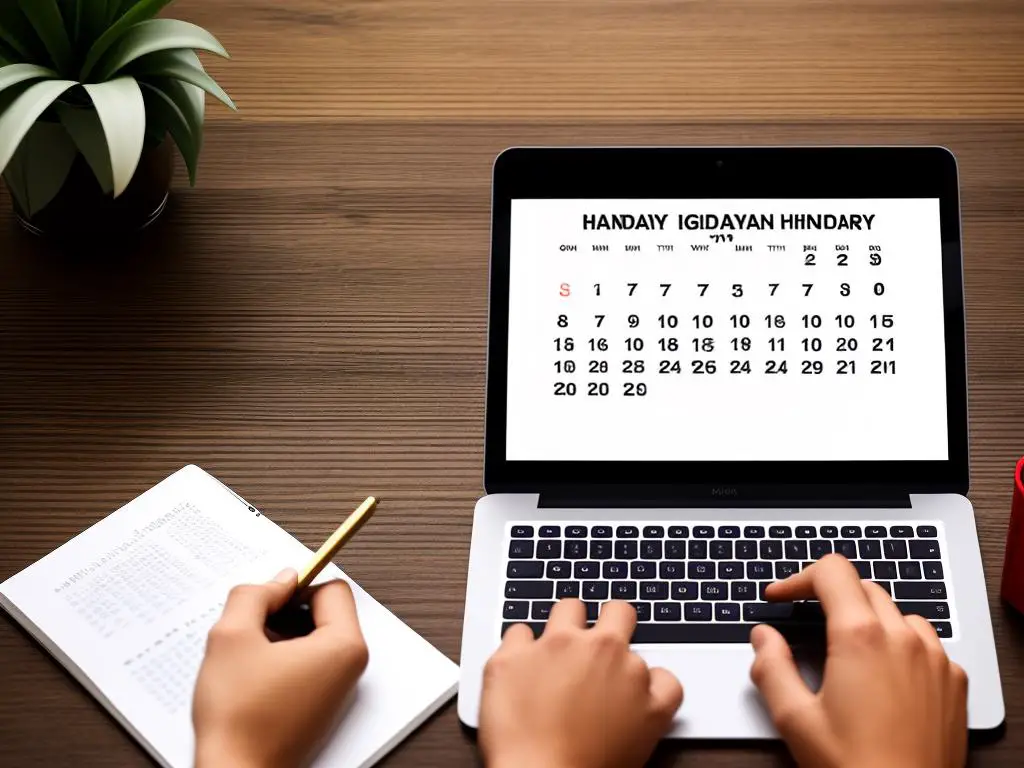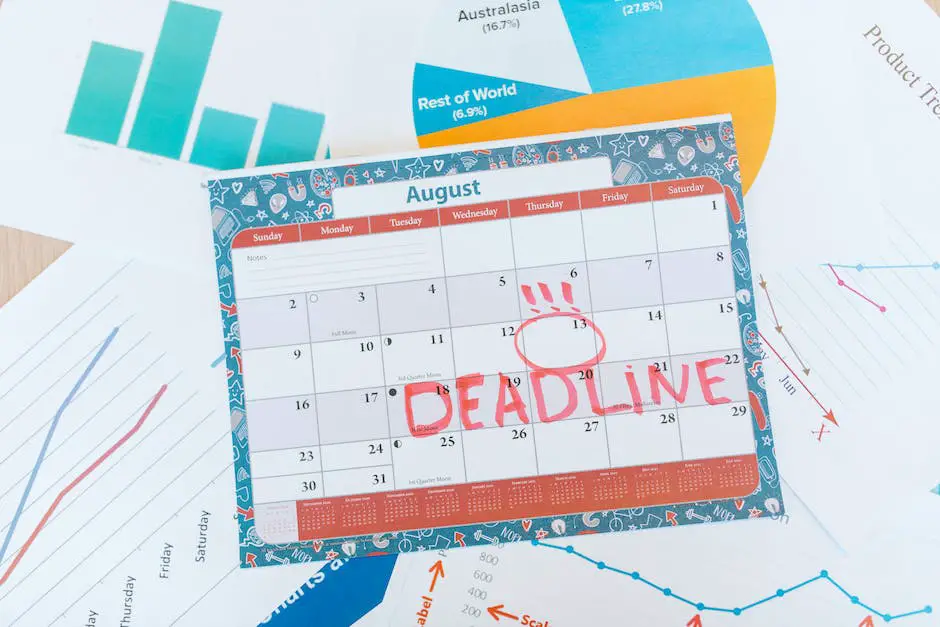In the fast-paced world of today, the value of personal time often goes unappreciated in the professional landscape. It’s significant to understand the immense value that a personal day holds not just for an employee’s well-being, but also for their overall work productivity and dedication. This discourse seeks to delve into the realm of personal days – exploring both the mental and physical benefits derived from such restful periods and presenting expert opinions supporting the same. Alongside, this piece will provide an insightful guide on navigating a conversation about personal days with your superiors, coupled with an array of effective and legitimate reasons for requesting one.
Understanding the Value of Personal Day
The Importance of Taking a Personal Day
Personal days offer time for individuals to address personal issues beyond the scope of standard holidays and sick days. They are essential for every working professional’s mental, physical, and emotional health. The significance of personal days is backed by a number of scientific studies suggesting that taking time off can lead to improved productivity, heightened moral, fewer workplace accidents, and less burnout.
For instance, research conducted by the American Psychological Association demonstrated that taking regular time off work is connected to higher productivity. The study showed that employees who take regular breaks from work have lower stress levels, improved focus, and a heightened sense of well-being. Personal days grant employees the chance to recharge their batteries, subsequently benefiting both the individual and the employer.
Further evidence supporting the value of personal days comes from the world of sports science. Performance psychologists highlight how rest between training sessions is crucial for muscle repair and growth. The same principle can be applied to occupational health. Regular breaks from work, including personal days, can help avoid chronic workplace stress which can lead to serious physical and psychological problems.
Approaching the Need for Personal Days
Despite the proven benefits, personal days remain a touchy subject in many work environments. So, knowing how to appropriately ask for a time off is vital. In general, honesty is the best policy when asking for a personal day. Sharing your need for a day off to rest and recharge is usually met with acceptance and understanding from employers.
However, it’s also important to be considerate of your employer’s needs and the overall impact of your absence on the team. Where possible, it’s a good idea to refrain from requesting personal days during incredibly busy periods or when your absence may cause undue stress to your colleagues.
Try to provide as much notice as possible, this gives your employer ample time to adjust schedules or make arrangements to cover your responsibilities. Remember to comply with company policy when it comes to how to ask for a personal day. Some workplaces might require a formal request while others may only need a verbal confirmation.
Insights from Professionals
Professionals emphasize the importance of personal days as a key aspect of self-care and insist that they should not be saved for emergencies. They recommend planning these days out in the same way as one would any other work-related responsibility. For making the most of a personal day, it is suggested that one indulge in activities that boost physical health and mental peace. This can range from taking a leisurely walk, practicing mindfulness activities, or spending quality time with one’s family and friends.
Employers, too, should be understanding of the relevance of personal days and promote a work culture that prioritizes their employees’ wellbeing. Hence, it’s preferable that personal days are not viewed as excuses but instead are branched out as an integral part of a supportive and healthy work ecosystem.

Effective Ways to Ask for a Personal Day
Realizing the Requirement of Personal Days
Recognizing the significance of personal days is paramount, regardless of how much one enjoys their job. Everyone needs to take a breather from their work routine periodically. Personal days symbolize precisely that – a set of days off separate from vacation leave or sick leave. Whether it’s about attending a child’s school event, looking after a loved one or even proactively managing mental health, personal days play a crucial role in maintaining a work-life harmony.
Identifying Your Company’s Policy
All companies have different policies for personal days, so the first step to successfully ask for one is to understand your workplace’s specific rules and restrictions. Some companies may require official request forms, while others may be fine with an email or verbal request. It’s crucial to follow these set procedures to ensure a smooth request process.
Timing Your Request
In terms of timing, it’s generally better to ask for a personal day as far in advance as possible. This gives your superior time to plan for your absence and avoids putting extra pressure on them or your colleagues. However, if an urgent or unexpected need arises, being transparent, and clear in communication is key to managing the situation.
Communication Methods: Email Vs In-Person Conversation
If your company allows it, emailing can be an efficient way to ask for a personal day. An email creates a written record of your request, which can be helpful if any issues arise later. Moreover, it gives your supervisor time to consider your request without making an instant decision.
Conversely, making your request in-person can also be a viable method if you have an open rapport with your superior. This direct mode of communication could facilitate a more empathetic and understanding discussion about your need for a personal day, especially for sensitive matters.
Managing Tone and Detail
When making your request, it’s important to keep a professional tone. While you should generally provide a reason for your request, the level of detail you go into will depend on the nature of your relationship with your superior and the reason for your personal day. In the case of sensitive or extremely personal matters, it’s okay to keep details to a minimum.
Understanding the key points when requesting a personal day off work is essential to make it a smooth process. Getting to know your firm’s specific rules, framing your request at the best possible time, and deciding on the ideal way to communicate can significantly facilitate your petition. Keeping a degree of professionalism and striking a balance as to how much information you should share can lead to an effective personal day request.

Legitimate Excuses for Taking a Personal Day
Acceptable Reasons to Apply for a Personal Day
Personal days are not just a requisite but a healthy means for employees to deal with particular matters in their life, recharge their batteries, alleviate stress, and sustain an equilibrium between work and personal life. Even though it’s not a typical requirement to lay out the exact reason for a personal day, most employees feel it’s appropriate to provide an explanation. Let’s delve into some of the typically accepted excuses for taking a personal day.
Physical Illness or Injury
Physical illness or injury is often the most common excuse used for taking a personal day. These could range from the common cold, flu, and other minor illnesses to more severe conditions that require medical attention. Providing proof such as a doctor’s note might be required in some instances, particularly for extended absences.
Mental Health Day
Mental health is increasingly recognized as a valid reason for taking a personal day. Individuals may need to take a day off to alleviate stress, avoid burnout, and maintain their mental wellbeing. In the long run, taking care of mental health helps to improve productivity and workplace morale.
Family Emergency or Illness
Caregiving responsibilities or a family emergency are also considered legitimate excuses for taking a personal day. These could involve caring for a sick child, attending to an injured family member, or dealing with a family crisis. Providing details may not be necessary due to privacy concerns, but some workplaces may require proof of the situation such as a medical report.
Important Personal Affairs
Managing essential personal matters that can only be attended to during working hours is another valid reason. These could include attend court hearings, closing a house sale, getting a car serviced, or parent-teacher meetings.
The Ethics Behind Personal Day Excuses
Ethics plays a significant role when discussing personal day excuses. It’s essential to tell the truth when requesting a personal day to maintain a good professional reputation. Falsely reporting a fabricated or exaggerated situation can potentially lead to negative consequences if discovered, like a damaged relationship with supervisors or dismissal in severe cases.
The Appropriateness of Different Excuses
The appropriateness of a personal day excuse often depends on workplace culture and policies. For instance, in a workplace that highly values mental health, an employer is likely to respect an individual’s need for a mental health day. On the other hand, some employers may require substantial proof for any absence.
To navigate the potentially complex issue of personal day excuses, it’s important to remember the old adage; honesty is the best policy. By providing a clear and honest rationale when you need a personal day, you contribute to a supportive and understanding work environment. It’s equally crucial to carefully select the timing of your day off, if this flexibility exists. Avoid selecting a day that bears high importance, like one with major meetings or imminent deadlines, to maintain your professional standing and limit workplace disruptions.

Dealing with Possible Consequences
Navigating Colleague Reactions: Addressing Responses to Personal Day Requests
Requesting time off can result in a variety of responses from employers and colleagues alike. Their reactions might span from empathetic understanding to outright refusal. Understanding and planning for these various responses beforehand enables you to manage them effectively and maintain positive professional relations.
Facing Refusal: Negotiating and Seeking Alternatives
Receiving a refusal to a personal day request can be a challenging situation, requiring careful navigation. In such instances, negotiation skills play a crucial role. Discuss with your superior the potential for making up the lost hours or working remotely if possible. Your willingness to compromise reflects a responsible and committed work attitude, which could influence your superior’s decision.
When negotiation doesn’t yield the desired result, identifying an alternative solution becomes necessary. Consider working with your teammates to swap shifts, or propose taking half of the day off instead of a full day. Again, the aim is to show that even while addressing personal matters, you’re mindful of your work responsibilities.
Managing Impacts: Mitigating Career Progression Consequences
Unexpected personal matters can pose setbacks to career progression. The key to mitigating adverse effects is managing perceptions and exhibiting strong work ethics. It’s crucial to reassure your superiors and colleagues that a personal day doesn’t reflect a lack of interest or commitment to your job.
Balance is pivotal. While taking a personal day, ensure it doesn’t interfere too often with your work duties. Frequent absences can raise doubts about your commitment and affect your chances of promotions or other career growth opportunities.
To Summarize: Key Practices in Managing Personal Day Excuses
In conclusion, handling responses to personal day excuses from superiors requires a strategic approach based on understanding, negotiation, and effective communication. In the event of refusals, it’s critical to explore alternative solutions while keeping the business needs in mind. To mitigate the impact on career progression, maintaining an impressive performance record at work is essential, along with infrequent and justified personal day leaves.

When understood and applied thoughtfully, requesting and taking personal days can be a strategic tool for maintaining work-life balance and fostering a supportive, understanding professional environment. While the direct benefits to the individual are often most apparent, organisations also gain from having employees who are physically, mentally, and emotionally renewed. Recognizing possible consequences and repercussions is an integral part of this process, allowing one to chart a professional course with conscious resilience. The outcome is a professional journey that pays homage to the necessity of regeneration, bolstering one’s capability to contribute meaningfully to the world of work.

Recent Comments